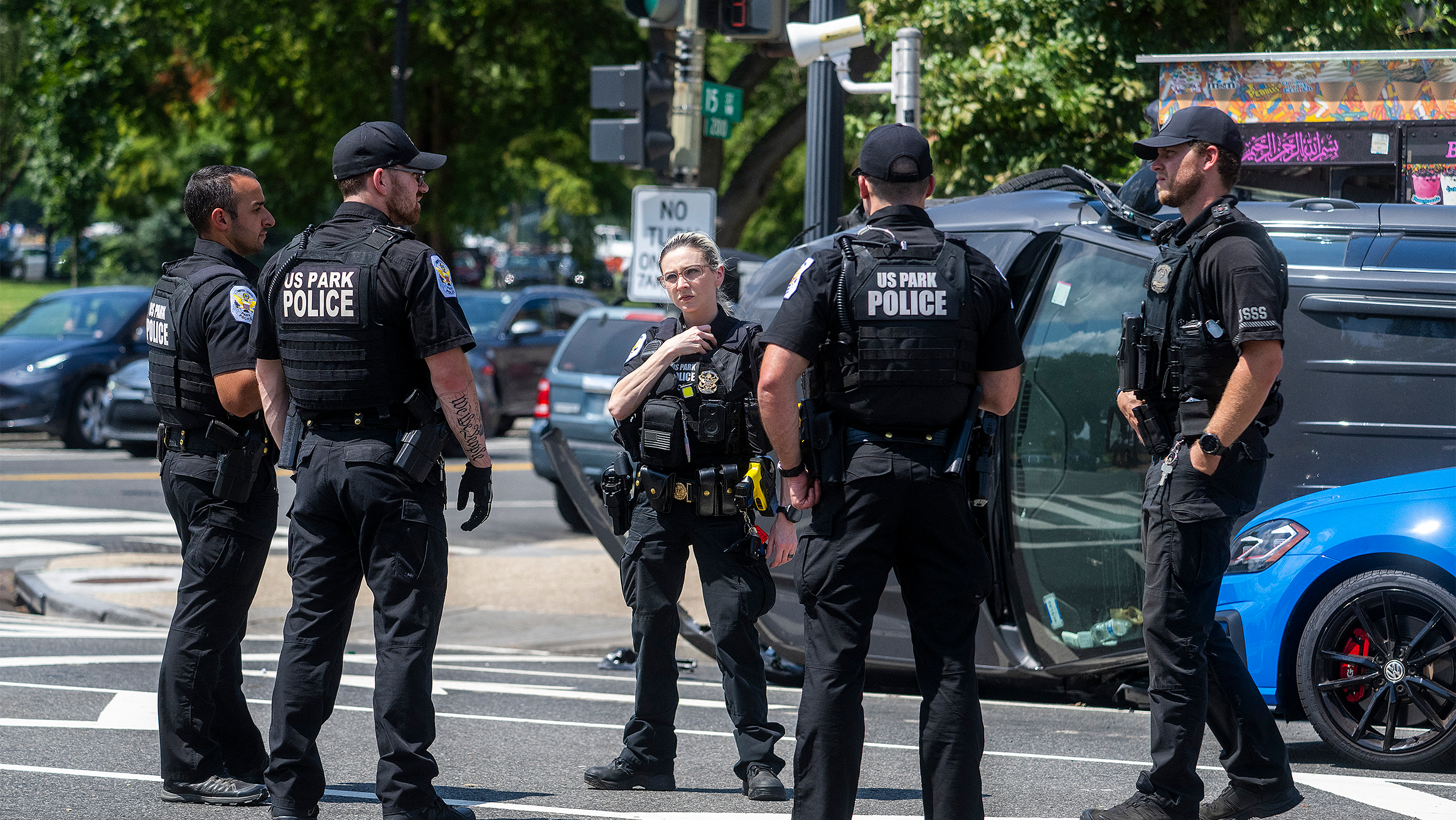
On Monday, August 11, 2025, President Trump announced the National Guard would take control of the Washington, DC, police department for 30 days. During his announcement, the president said people experiencing homelessness were being removed from public parks and that the administration may consider expanding efforts to other cities.
These announcements—while lacking specifics on what the removal of people experiencing homelessness would look like—follow an increasing movement nationwide to forcibly address homelessness. On July 24, the president issued an executive order on homelessness calling for all federal agencies to work to “end vagrancy” and to prioritize resources for communities that “enforce prohibitions of urban camping and loitering.” Simultaneously, policies that disrupt encampments and encourage arresting or issuing citations to people for being homeless or performing basic life functions outside have been growing across the country.
The president’s announcement and city leaders’ actions do beg the question: Will these tactics end homelessness? The evidence provides a resounding no.
Criminalization and forced relocation doesn’t solve homelessness
Policies that criminalize homelessness, or that call for the disruption or removal of encampments without providing meaningful referrals to shelter, housing, and other services, do not solve or even ameliorate homelessness. President Trump suggested on Truth Social that "we will give you places to stay." But he didn't mention that plan in his press conference or executive order, and a place to stay without further support wouldn't be sufficient. Further, the evidence overwhelmingly shows the following about criminalization:
- It’s an ineffective deterrent. Recent research shows that adopting criminalization ordinances (anticamping or loitering bans, citations for public urination or ownership of animals by people not living inside a home, and more) doesn’t reduce the number of people experiencing unsheltered homelessness in a community. Instead, it’s stressful for people experiencing homelessness and decreases people’s ability to access needed housing and medical services.
- It disrupts connections to resources. Encampment clearing and forced relocation, even without arrests or citations, can break connections to resources and services people experiencing homelessness need. Research shows that people who live in encampments congregate around locations that provide access to homeless service programs and have improved access to supports, food, and jobs.
- It prolongs homelessness. Citing or arresting people for experiencing homelessness can exacerbate their situation (PDF) because people are unable to pay court fees (or they pay for court fees instead of other things that could help resolve their homelessness) and because their possessions are thrown away or confiscated during an arrest, often including essential documentation such as IDs, birth certificates, and Social Security cards.
- It costs taxpayers. Research shows Denver police spent 2,789 hours on minor homelessness-associated offenses in 2018 but that strategic housing and shelter-focused policies could decrease that time by 1,450 hours. Encampment clearing also carries high costs. A 2016 report from Hawaii showed $15,000 per week was spent on encampment clearing that resulted in only temporary displacement of people.
Housing solves homelessness
Criminalization and encampment clearing don’t solve homelessness. Multiple decades of evidence have shown that housing is the solution to homelessness. The most rigorous research on homelessness conducted to date shows that housing vouchers and supportive housing are the most effective interventions to help people access housing and remain housed. Additionally, research shows that the faster a community develops permanent supportive housing, the faster the rate of chronic homelessness decreases. Finally, communities that focus on reducing homelessness through evidence-based housing approaches allow police to focus on “other community activities, such as outreach and general traffic stops, instead of responding to homelessness.”
DC has employed many of these interventions and despite how the president portrayed the city in his press conference, the city reported a 9 percent decrease in homelessness from 2024 to 2025, crediting a focus on permanent housing and connecting people to shelter, housing, and supportive services and resources. Washington, DC, was just one of a number of large cities that also reported decreases in unsheltered homelessness by connecting people to permanent housing and shelter, including Dallas, Denver, and Los Angeles.
Unfortunately, the interventions that research proves are effective at ending homelessness have never been funded to the scale needed to resolve homelessness nationwide—and the president’s proposed budget includes drastic cuts to programs that provide these services. Only 20 percent of households eligible for federal housing assistance receive it, and only 16 percent of people who experience homelessness receive a permanent housing intervention. These interventions work, but there aren't enough of them. One would not assert that EpiPens don’t save people from allergic reactions if a hospital only had five EpiPens but 25 people experiencing an allergic reaction.
Housing combined with supportive services tailored to each person’s needs remains the evidence-based solution to homelessness. Instead of an ineffective, expensive bid to use the military to address homelessness in DC and potentially other cities, this administration and all state and local governments should follow the evidence by putting resources toward housing, shelter, and connections to meaningful services.
Let’s build a future where everyone, everywhere has the opportunity and power to thrive
Urban is more determined than ever to partner with changemakers to unlock opportunities that give people across the country a fair shot at reaching their fullest potential. Invest in Urban to power this type of work.